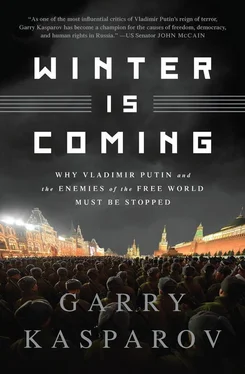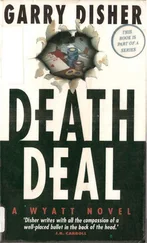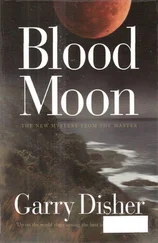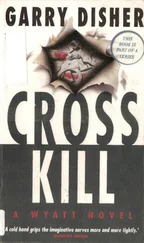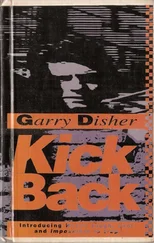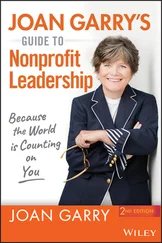What happened was still much worse than I expected. The Obama administration trotted out its reset plan, complete with Hillary Clinton’s inaccurate button. Imagine the message this warm overture sent to Vladimir Putin. (Technically, the recipient of the message was Dmitry Medvedev, but let’s not trifle with such absurd pretenses.) If Putin occasionally seems incredulous at the relatively robust international response to his 2014 invasion of Ukraine, perhaps it’s because he is simply waiting for his next reset button.
In her 2014 memoir, Hillary Clinton goes to great lengths to defend the Reset and to explain that she was never taken in by Putin. Ironically, this post-facto position follows the same pattern as the memoirs of her political adversaries: George W. Bush, Condoleezza Rice, Dick Cheney, and Donald Rumsfeld. With near unanimity, often with very similar phrasing, they all say they knew Putin was a bad guy, but they had no choice but to do business with him. (Bush 43 is the most forthcoming about the possibility he had misjudged Putin, as I’ll discuss later.)
As someone who has been yelling from every rooftop and op-ed page about Putin’s nature and ambitions for over a decade, the sight of so many powerful US politicians agreeing with me as soon as they are out of office is infuriating. Their books give no space at all to what they might have done differently to influence Putin’s behavior while they had the power to do so. The idea that the United States might have threatened to isolate Putin, to cut him and his billionaire cronies off, to use the stick after he had eaten all their carrots, never comes up.
When the US government finally did take limited steps to respond to the Putin regime’s many abuses, it came only after Putin had achieved total power in Russia and a sense of complete impunity. And the move didn’t even come from inside the administration. The Magnitsky Act legislation that levied asset and travel sanctions on some Russian officials for human rights abuses was championed by American-British investor Bill Browder. One of his Russian investment group’s lawyers, Sergei Magnitsky, was arrested in 2008 by the same corrupt law enforcement officials whose massive fraud he had exposed. A year later he died in pretrial detention after being beaten and failing to receive adequate medical attention.
The Magnitsky legislation was Browder’s retaliation in a way, and at first the Russian officials on the list were only a few who were directly related to Magnitsky’s persecution and death. It’s notable that the Obama administration fought against it from the start, and it was only signed into law as part of a House bill that also normalized trade with Russia, which had previously been restricted in some ways by the famous 1974 Jackson-Vanik amendment.
The Obama administration followed Europe’s embarrassingly cautious lead in applying sanctions against Russia and to Putin’s allies in the wake of Russia’s 2014 invasion of Ukraine. Despite the overwhelming and bipartisan congressional support for doing more-arming and training Ukraine’s military in particular—Obama continued to echo Merkel, Hollande, and other European leaders talking about “finding a peaceful solution” when there was already a war in progress. They insisted on referring to Putin as someone who would negotiate in good faith, even after he triumphantly admitted in March 2015 that he had been lying about the presence of the Russian military in taking Crimea a year earlier.
I do not believe that Merkel and Obama are so oblivious, especially Merkel, who was born in the Communist German Democratic Republic. So the only explanation is that they still find the Putin problem so politically thorny that it’s easier to pretend there isn’t one. And it may even be true, for them personally, for a while. Perhaps they only wish to postpone total catastrophe until they are safely out of office and can leave Putin to their successors. In any case, it is a moral capitulation that has produced very real costs.

THE END OF THE COLD WAR AND THE FALL OF THE USSR
In the middle of the summer in 1989, I gave a long interview to a magazine that practically personified Western decadence in the Soviet imagination: Playboy. But it wasn’t just the publisher of my interview that raised eyebrows in the Soviet Union. Despite the increasing atmosphere of glasnost, openness, between America and the USSR, and the slow loosening of political repression under Mikhail Gorbachev’s perestroika, my outspoken criticism of Soviet society and my praise for America and Americans in particular were something of a scandal. The fall of the Berlin Wall on November 9 was still five months away and largely unimagined. A month after that, Gorbachev and President George H. W. Bush would declare that the USSR and the United States were no longer enemies. But even in this rapidly changing environment my comments sounded close to treason to some in the Kremlin.
PLAYBOY: You sound like an American. Americans always want to be winners.
KASPAROV: This is a very human quality. It proves that Americans are very close to true human nature.
For Soviet authorities steeped in the myth of the moral superiority of Communism and the Soviet man, comments like these were quite serious. In today’s world it may seem quaint, or else catastrophically oppressive, but socialist ideology and perceptions of morality were very much part of the Cold War arsenal. When the Soviet sports authorities attacked me for wanting to retain my chess winnings, they condemned not only my disobedience, but my lack of socialist solidarity. For me to say that my neighbors in Baku should see my keeping the Mercedes I won in Germany as normal, healthy thinking was radical and subversive.
Of course my interview wasn’t as much of a public scandal as Russian actress Natalya Negoda appearing nude in the same magazine earlier in the year after playing a call girl in a movie that shocked the prudish Soviet society. Her photos and my interview in a publication that was still banned in the USSR, and the confused responses they provoked, were indicative of the perestroika period. Our country’s tentative steps toward greater openness were tantalizing, but we knew we could be punished and the reforms rolled back at any time. There were no clear rules any longer, and more and more people were finding the audacity to test just where the lines were at a given moment.
In 1987, Gorbachev said he wanted to build Alexander Dubcek’s “socialism with a human face,” to which I responded that Frankenstein’s monster also had a human face. Communism goes against human nature and can only be sustained by totalitarian repression. Without outside assistance, or massive amounts of natural resources like oil, repression leads to economic stagnation. Then there is the moral and spiritual stagnation of a society were individual success and excellence are all but forbidden.
Of course there were specific events that helped expose the fatal flaws in the Communist system and force Gorbachev into his desperate attempts to reform and save the country. One was the April 1986 disaster at the Chernobyl nuclear plant in Ukraine, and how the crisis was handled revealed official levels of incompetence, corruption, and mendacity beyond those of any banana republic. (Anatoly Karpov and I donated the prize fund from our 1986 world championship match to the Chernobyl victim relief fund.) Then there was the Soviet war in Afghanistan, which was going into its tenth year by 1989, and had been as ineffective, unpopular, and expensive as the American and NATO sequel would be.
Читать дальше
